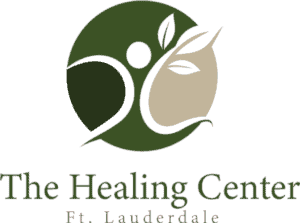Alcohol withdrawal occurs when your body is dependent on alcohol in order to function and you either stop drinking or cut down your alcohol consumption. Sometimes quitting alcohol only causes mild withdrawal symptoms. However, other times it can be severe and even deadly. Alcohol is what is known as a depressant. This means that it slows down the central nervous system, especially the brain. When you drink continuously over a period of time, the body begins to become accustomed to the effects of alcohol. When you start quitting alcohol the central nervous system becomes over stimulated, which causes withdrawal symptoms.
Read on to learn more about the withdrawal symptoms and potentially deadly effects of quitting alcohol.
What Are The Symptoms Of Withdrawal That Occur When Quitting Alcohol?
The symptoms of alcohol withdrawal can range from mild to deadly. Normally, withdrawal symptoms are more serious if a person has been drinking heavily for a long period of time. Overall, the timeline of alcohol withdrawal is about a week, However, it can last longer for some people.
The Initial And Mild Symptoms Of Alcohol Withdrawal
Withdrawal symptoms can begin as early as a couple of hours after your last drink. The initial symptoms of withdrawal when quitting alcohol include:
- Tremors
- Insomnia
- Nausea and/or vomiting
- Restlessness
- Agitation
- Anxiety
- Headache or migraine
- Sweating
In individuals with lower levels of alcohol dependence, the above symptoms may be the only symptoms that occur during the withdrawal process. Normally, the initial symptoms from quitting alcohol worsen and then reduce over the next few days.
Serious of Symptoms Of Alcohol Withdrawal
People who have a higher level of alcohol dependency will likely experience more serious symptoms of withdrawal.
- Hallucinations-may be visual, auditory, and/or tactile
- Often appear 24 hours after the last drink
- Seizures
- Appear within about 24 hours
- About 3% of individuals who experience seizures from alcohol withdrawal may have a very serious seizure called epilepticus seizure
- Delirium tremens
Can You Die From The Side Effects Of Quitting Alcohol?
The more serious side effects of alcohol withdrawal can be life threatening. If you or someone you know is experiencing hallucinations, seizures, and delirium tremens, then it is imperative that you seek medical attention immediately. Delirium tremens are the most deadly side effect of quitting alcohol. The symptoms of delirium tremens include:
- Confusion and feeling disoriented
- Hallucinations
- Rapid heart rate
- High breathing rate
- Hypertension (high blood pressure)
- Low grade fever
- Excessive sweating
- Agitation
- Stupor
- Loss of consciousness
If medical intervention happens early, then the risk of death from delirium tremens is very low. It is important to detox from alcohol in a medical setting. Furthermore, people should enter into an alcohol rehab program immediately after detox. Rehab reduces the risk of relapse. It is important to take sobriety seriously and develop the tools you need to stay sober in a safe and supervised environment.
Some people are more at risk for delirium tremens than others. Individuals who are in an older age group and those who have:
- Another acute or chronic illness
- A history of daily and heavy drinking
- A history of having seizures or delirium tremens from withdrawal
- Liver disease, liver damage, or abnormal liver function
Managing Withdrawal Symptoms
In a medical detox setting your withdrawal symptoms will be managed in a number of different ways. In addition, an alcohol rehab will help you medically manage acute withdrawal symptoms from quitting alcohol.
There are a number of FDA approved medications that are used to help people through the withdrawal process. Detoxes normally give alcoholics benzodiazepines in order to ease their symptoms. These include:
- Valium
- Librium
- Ativan
Anti seizure medications are also normally prescribed when someone is going through alcohol withdrawal. In addition, detox and alcohol rehabs will also provide supportive care. Supportive care includes making sure clients drink enough fluids, maintain electrolyte balance, and providing nutrient rich foods.
Alcohol rehabs will also provide clients with the option of medically managing their alcoholism long term. There are a couple of different medications that are FDA approved:
- Acamprosate which helps minimize or prevent symptoms of alcohol withdrawal.
- Disulfiram causes unpleasant symptoms when someone drinks alcohol. This normally reduces someone’s desire to drink.
- Naltrexone aids in preventing cravings for alcohol by blocking certain receptors in the brain.
Why Is Treatment Important For Alcohol Dependence?
Medical treatment is vital in order to treat alcohol dependence. Treatment programs provide medical intervention and supervision as you go through the detox process. In addition, rehab programs provide therapeutic services in order to help you build a solid foundation for your life in recovery moving forward. Facilities, like The Healing Center, offer their clients cognitive behavioral therapy, life skills programs, trauma therapy, and alumni programs in order to treat alcoholism psychologically and physically. There is no quick fix to alcohol addiction, and it is important to utilize the tools that are available to you in order to maintain your sobriety. In early sobriety, people often find themselves struggling with cravings. Cravings are a normal occurrence, and are characterized by a deep desire to drink again. At The Healing Center, our counselors teach clients coping skills in order to deal with cravings and prevent relapse.
Alcohol Rehab Programs In Fort Lauderdale, FL
The Healing Center, in Fort Lauderdale, FL, provides one of the most premier alcohol programs in South Florida. We believe in treating every aspect of alcoholism including the physical, emotional, social, and spiritual side effects. Addiction affects every single aspect of someone’s life and it takes professional intervention in order to rebuild. Don’t face the process of quitting alcohol alone. We are here to help you every step of the way. Call the admissions team at The Healing Center today and begin your sobriety journey.






